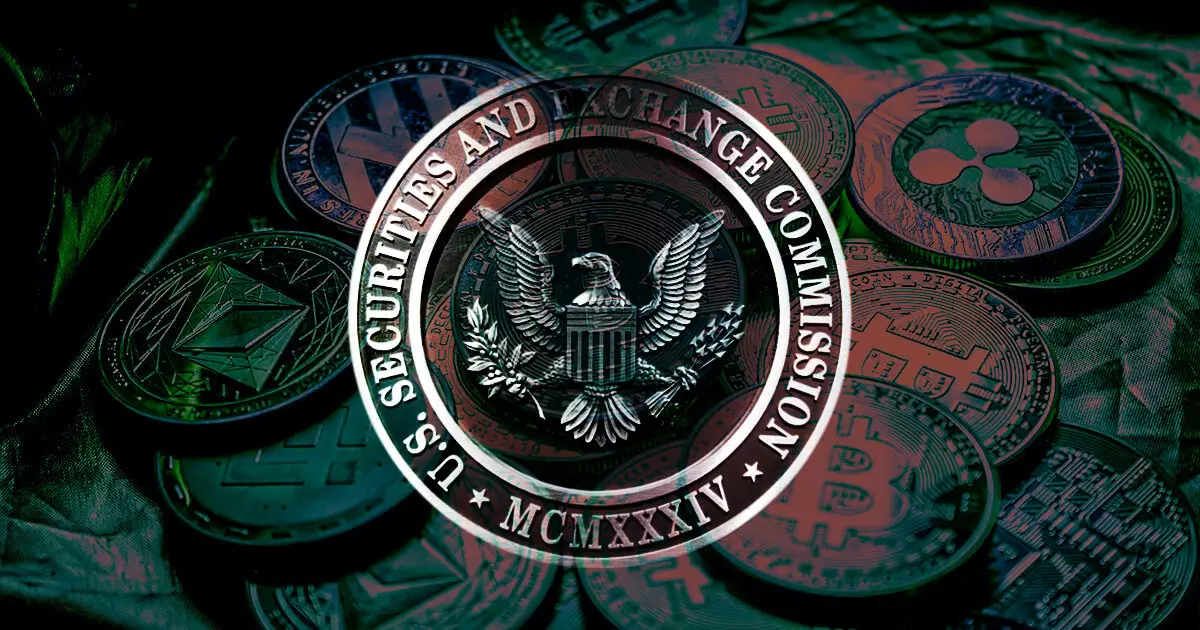In the ever-evolving landscape of finance and technology, the role of the U.S. Securities and Exchange Commission (SEC) is pivotal, particularly concerning the regulation of cryptocurrencies. As the Senate Banking Committee gears up for a critical decision on December 11, the spotlight is firmly on Caroline Crenshaw, a Democrat SEC commissioner whose stance against crypto has sparked a fierce backlash from the cryptocurrency community. Her potential re-nomination poses significant implications for the future of digital assets in the United States.
Since her appointment in August 2020, Caroline Crenshaw has not shied away from voicing her skepticism regarding cryptocurrencies. Her dissenting opinion regarding the approval of spot Bitcoin exchange-traded funds (ETFs) earlier in January serves as a prominent example of her views. Crenshaw labeled the decision to approve these ETFs as “unsound and ahistorical,” expressing concerns that it sets a dangerous precedent that could ultimately harm investors. This critical perspective has alienated her from the crypto community, where her arguments are often seen as impediments rather than protective measures.
Crenshaw’s resistance to Bitcoin ETFs is not merely a personal opinion; it reflects a broader philosophy towards crypto regulation that prioritizes caution over innovation. Observers have noted that her views are even more critical than those of acting SEC Chair Gary Gensler, who himself has faced considerable backlash for his handling of crypto regulation. As such, Crenshaw’s re-nomination appears to threaten the potential for a more accommodating regulatory environment that many in the crypto sector have clamored for.
The political dynamics surrounding Crenshaw’s potential re-nomination add another layer of complexity to the narrative. Detractors of her policies are vocal about what they perceive as an attempt by Democrat Senate Banking Chair Sherrod Brown to solidify a legacy of stringent regulation over cryptocurrencies before handing over the reins. Notably, the ramifications of the Senate’s vote extend beyond Crenshaw’s future; if confirmed, she could maintain her influential position within the SEC until 2029.
Conversely, if the Senate refuses to confirm her, this could pave the way for President-elect Donald Trump to put forth a nominee more amenable to the crypto community. The possibility of a shift in leadership at the SEC presents a refreshing prospect for advocates of the digital asset space, who have long criticized what they deem to be overly restrictive regulatory practices.
Within the cryptocurrency sector, opinions on Crenshaw’s nomination are decidedly negative. Companies and leaders within the industry have expressed their discontent through social media and public statements. Emilie Choi, the president and COO of Coinbase, vocalized that Crenshaw represents a hazardous element to the growth of digital currencies, stating, “The SEC has to change.” Furthermore, comments from industry insiders indicate a broader sentiment that a renewed regulatory approach is necessary to foster innovation and competition within the cryptocurrency space.
Austin Campbell, CEO of WSPN, even remarked on the troubling notion that Crenshaw advocated for the SEC to disregard a federal judge’s ruling, which mandated the approval of Bitcoin ETFs. This kind of defiance not only raises questions about her respect for the legal system but also reflects a broader unwillingness to evolve alongside the rapidly changing financial landscape.
The stakes have never been higher for the future of cryptocurrency regulation in the United States, particularly in light of former SEC Commissioner Paul Atkins’ nomination as the next SEC chief. Known for his favorable view of cryptocurrencies, Atkins represents a stark contrast to Crenshaw. His expected leadership may bring a wave of change, with a focus on embracing innovation while ensuring investor protection.
As the Senate banking committee prepares for a decisive vote, one thing remains clear: the pressure from the cryptocurrency community is monumental. They are rallying for a shift toward a regulatory environment that embraces technological advancement rather than stifles it. Whether the Senate will heed these calls remains to be seen, but the impending decision could indeed shape the trajectory of cryptocurrency regulation for years to come.
As onlookers await the Senate’s decision, the tension between traditional regulatory frameworks and the burgeoning field of cryptocurrencies exemplifies an ongoing struggle between innovation and regulation. The outcome may ultimately determine how the U.S. positions itself on the global stage concerning digital assets.
















Leave a Reply